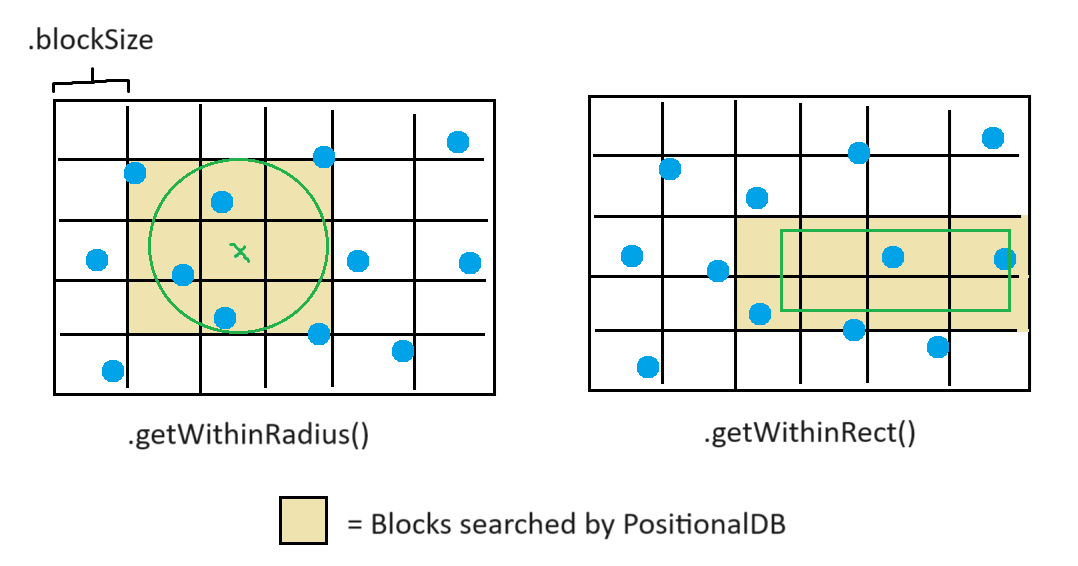nearby-points
v1.0.10
Published
A package for finding data points within a region.
Downloads
17
Readme
nearby-points
A package for finding data points within a region.
sample usage
import { PositionalDB, PointData } from "nearby-points";
// create subclass PointData
class Restaurant extends PointData {
foodCategory: string;
rating: number;
constructor(x: number, y: number, foodCategory: string, rating: number) {
super(x, y);
this.foodCategory = foodCategory;
this.rating = rating;
}
}
// initialize db
const foodDB = new PositionalDB("filename.db",
"foodCategory TEXT, rating REAL");
// insert data
foodDB.add(new Restaurant(10, 10, "fried chicken", 3.6));
foodDB.add(new Restaurant(13, 76, "sandwiches", 4.1));
foodDB.add(new Restaurant(90, 45, "smoothies", 4.7));
// find restaurants within 100 units of (50, 50)
const foodNearby = foodDB.getWithinRadius(50, 50, 100);performance
nearby-points is much faster then dumping all points into one SQL table.
However, .db files will take more disk space.
Tests for finding points within 20 units of (50, 50):
n - number of points, randomly generated between (0,0) and (100, 100)
plain db - SQLite3 database where all data points are put into 1 table
positional db - SQLite3 database created using PositionalDB class
speed (ms)
| n | 100 | 1,000 | 10,000 | 100,000 | | ------------ | ------ | ------ | ------ | -------- | |plain db | 0.1759 | 1.6521 | 12.062 | 147.9294 | |positional db | 0.2663 | 0.3484 | 2.625 | 17.2353 |
disk space (bytes)
| n | 100 | 1,000 | 10,000 | 100,000 | | ------------ | ---- | ------ | ------- | -------- | |plain db | 4096 | 122880 | 1257472 | 12984320 | |positional db | 4096 | 208896 | 1515520 | 13004800 |
The code that ran these tests can be found here

